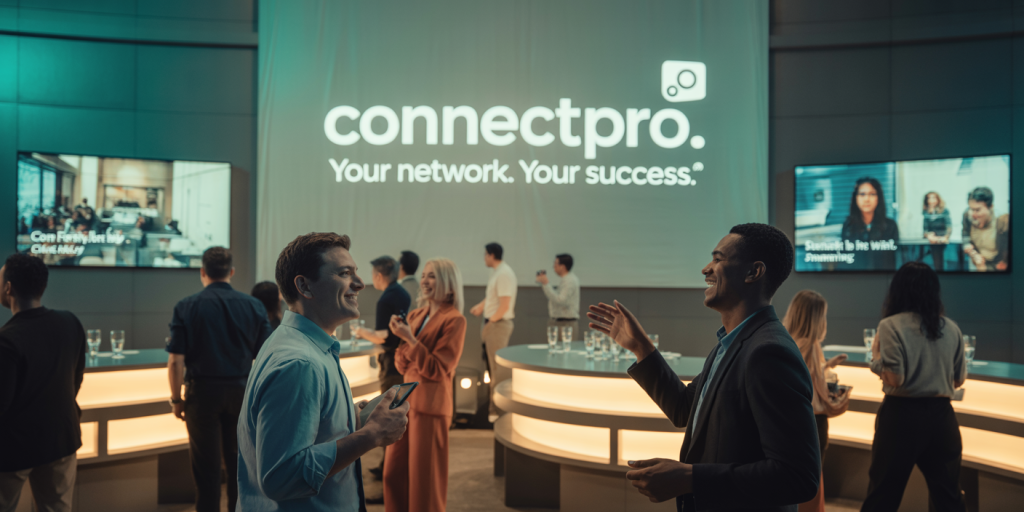The Power of Networking Events: How to Connect with the Right People
In today’s dynamic professional landscape, the ability to connect with the right people can unlock countless opportunities. Networking events remain one of the most effective ways to build meaningful relationships, exchange ideas, and accelerate career growth. Unlike online networking platforms, in-person or even virtual events offer immersive environments to engage in authentic conversations, gain insights, and foster trust. This article explores the strategic power of networking events and provides practical approaches to maximize their impact.

—
Understanding the Value of Networking Events
Networking events, ranging from industry conferences and trade shows to informal meetups and seminars, are designed to bring together professionals with shared interests or goals. According to a 2023 LinkedIn survey, 85% of jobs are filled through networking, underscoring the critical role connections play in career advancement. Beyond job searching, these events enable knowledge sharing, business development, and even personal growth.
Anúncios
Anúncios

For example, at the annual Consumer Electronics Show (CES), thousands of innovators gather not just to showcase products but also to collaborate. Companies like Samsung and Sony have historically leveraged CES networking opportunities to form strategic partnerships that led to cutting-edge technologies. Through casual yet targeted interactions, professionals can discover complementary skills, locate mentors, or identify new markets.
Networking also boosts visibility. When you consistently participate in events within your industry, you cultivate a reputation as a committed and informed professional. Over time, this can result in invitations to exclusive circles or direct business referrals – intangible yet invaluable outcomes.

Strategies to Identify the Right Networking Events
Not all events are created equal, and attending the wrong ones can waste valuable time and resources. The first step to harnessing networking power effectively is selecting events aligned with your goals. Consider the following criteria: Relevance to Industry/Role: Choose events where your target audience or key decision-makers are likely to gather. For instance, tech entrepreneurs may prioritize startup pitch nights or developer conferences like TechCrunch Disrupt over general business expos. Size and Format: Smaller roundtables or workshops might provide deeper engagement opportunities, while larger conferences cast a wider net for diverse contacts. Virtual events, increasingly common since 2020, can offer flexibility but may require different tactics to stand out. Reputation and Quality of Speakers: Events featuring renowned speakers or panelists tend to attract influential attendees and high-caliber content, enhancing the potential for meaningful connections.
A comparative table below illustrates these factors:
| Event Type | Ideal For | Advantages | Limitations |
|---|---|---|---|
| Industry Conferences | Broad networking, visibility | Access to key leaders, large pool of contacts | Can be overwhelming, costly |
| Workshops/Seminars | Skill development, smaller groups | Interactive and focused | Limited diversity of contacts |
| Meetups/Informal Events | Casual connections, local networking | Low cost, relaxed environment | May lack strategic depth |
| Virtual Events | Global reach, convenience | No travel needed, can access varied topics | Limited personal interaction |
Selecting events with intention and context ensures that your engagement aligns with your broader career or business objectives.
—
Best Practices to Connect Effectively
Attending a networking event is only half the battle; making authentic, memorable connections is the true goal. Here are actionable approaches to optimize your engagement:
1. Preparation: Research the attendee list and key speakers when possible. Identifying specific individuals to connect with allows you to formulate personalized talking points, signaling genuine interest and professionalism.
2. Elevator Pitch: Craft a concise, impactful introduction about who you are, what you do, and what value you offer. This sets the stage for deeper conversations and helps others quickly understand your relevance.
3. Active Listening: Networking is as much about listening as it is about talking. Paying close attention builds rapport and uncovers opportunities organically. For example, a marketer at a startup conference listened to a fellow attendee’s challenge with social media strategy and later collaborated on a successful campaign.
4. Follow-Up: Immediate follow-up within 24-48 hours, referencing specific discussion points, keeps the connection alive. LinkedIn requests with personalized messages or email thank-yous can turn fleeting introductions into lasting relationships.
Real-world case studies highlight how effective connection strategies yield tangible results. For example, Sarah Blakely, founder of Spanx, reportedly used industry events to connect with manufacturers and investors, accelerating her company’s growth exponentially. Similarly, Mark Cuban attributes much of his early business success to strategic networking at trade expos and entrepreneur forums.
—
Leveraging Digital Tools to Enhance Networking Outcomes
While face-to-face interaction remains valuable, integrating digital tools amplifies the reach and sustainability of networking efforts. Platforms like LinkedIn, Clubhouse, and specialized apps such as Shapr enable professionals to maintain dialogue beyond the event.
An analysis by HubSpot (2022) showed that users who combined in-person networking with subsequent digital interactions had a 60% higher chance of converting connections into business opportunities or collaborations. By sharing digital portfolios, articles, or recommendations, individuals provide value continuously, reinforcing their professional brand.
Utilizing CRM tools to organize and segment contacts streamlines follow-up and nurturing. Virtual event platforms with integrated matchmaking algorithms, like Brella, also assist attendees in finding compatible connections based on interests and goals.
However, balance is essential. Over-reliance on digital communication can erode personal touch, so blending warmth and professionalism is critical.
—
Overcoming Common Networking Challenges
Despite its benefits, networking often evokes anxiety or discomfort. Many professionals question how to initiate conversations, avoid awkward silences, or manage rejection. Addressing these barriers directly empowers better engagement.
One approach involves setting small, measurable goals – such as meeting three new people per event – to prevent overwhelm. Practicing introductory lines or questions beforehand can increase confidence. For instance, the question “What inspired you to attend this event?” is open-ended and encourages meaningful dialogue.
Another challenge is identifying genuine opportunities amidst superficial exchanges. Evaluating connections by mutual value rather than sheer numbers ensures more fruitful relationships. Research by Harvard Business Review indicates that people with tight, trust-based networks experience 20% higher career satisfaction and advancement.
Finally, understanding cultural nuances and event etiquette fosters respectful interactions. In global or diverse settings, being mindful of different communication styles and customs can improve rapport tremendously.
—
Future Perspectives: The Evolution of Networking Events
Networking is evolving rapidly, driven by technological advances and shifting professional dynamics. Hybrid events combining physical gatherings with virtual components have become norms, enabling wider participation and innovative formats.
Artificial intelligence and data analytics are being employed to personalize networking experiences, suggesting optimal matches and agenda customization. Furthermore, the rise of metaverse platforms could redefine interaction by creating immersive virtual environments where attendees network with realistic avatars in real time.
Remote work trends underscore the importance of intentional networking since casual office interactions dwindle. Consequently, organizations and individuals alike will need to adopt more strategic, multifaceted approaches to cultivate and sustain professional connections.
In the decades ahead, networking is poised to become more inclusive, data-driven, and experience-oriented. Those who adapt and refine their networking skills will gain competitive advantages in an interconnected global economy.
—
Networking events, when approached with strategy and authenticity, wield tremendous power to connect individuals to the right people. By selecting relevant events, preparing effectively, leveraging digital tools, and overcoming common challenges, professionals can unlock opportunities that transcend traditional career pathways. As networking continues to evolve, embracing innovation while maintaining personal touches will be key to building enduring, impactful relationships.
